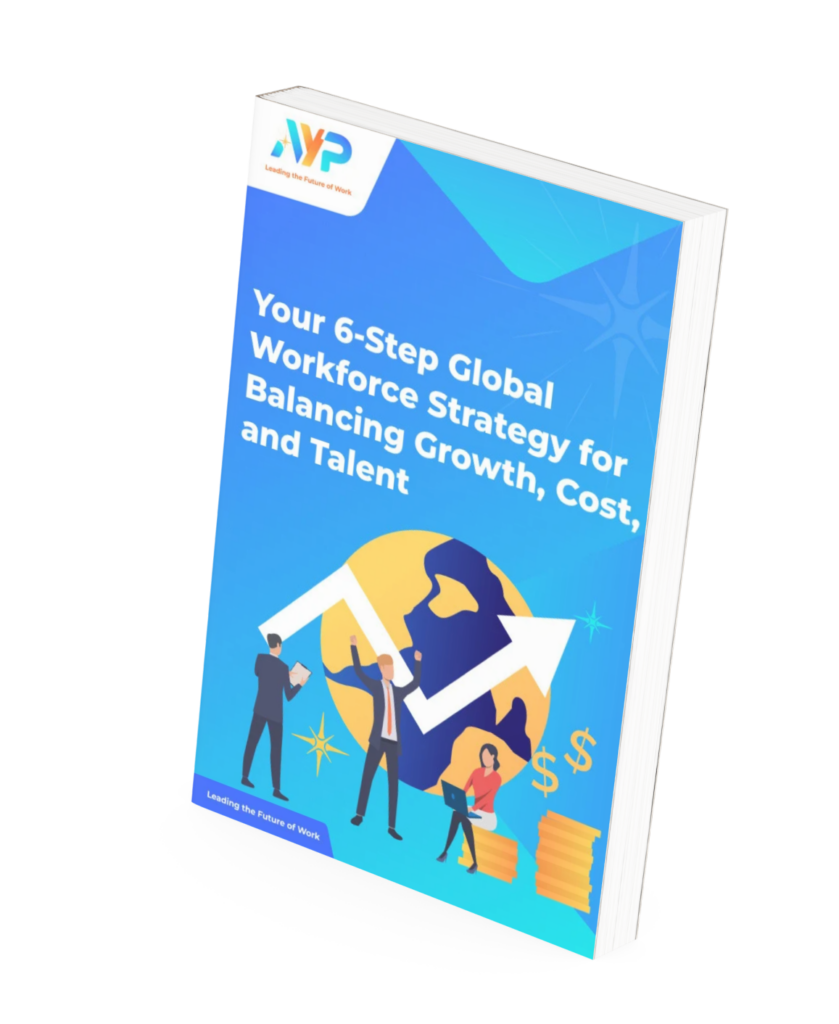Even without a legal entity, you can expand your business to Thailand with AYP’s EOR solutions without worry.
Business expansion overseas can get messy and complicated, because you need to know of so many local laws and regulations to avoid any legal trouble. But with remote working gaining traction, expanding your business overseas is a good opportunity you can’t afford to miss. How can you do so legally and easily, then?
You can count on AYP’s EOR solutions to handle all the work, so that you can hire overseas, onboard remotely, and manage your tax responsibilities and compliance across countries. Here are 5 quick tips on how to build a team in Thailand:
Understand contract employment and severance terms
Thailand allows contract employment to be done verbally, but a properly drafted written contract with details such as position, compensation, employment benefits, and termination terms is always preferred.
Probation is not mandatory, but any given probation shouldn’t last longer than 119 days. During this time, the working relationship can be easily terminated.
However, the termination of a contract is generally dependent on whether there was a justified reason or not. To terminate an employee without reason, a written notice of at least a month in advance has to be given. Severance also has to be paid according to the length of the employee’s employment:
| Employment length | Compensation amount |
| Less than a year | 30 days |
| One to three years | 90 days |
| Three to six years | 180 days |
| Six to 10 years | 240 days |
| 10 to 20 years | 300 days |
| 20 years or more | 400 days |
Companies can pay additional compensation to shorten the notice period, and the monetary compensation will differ if an employee is terminated due to financial rather than performance-related reasons.
Learn about Thailand’s national social security fund
Thailand’s national social security fund provides financial aid for employees’ medical care, child care, and loss of income due to unemployment, disability, or childbirth. Funeral costs and retirement pensions are also provided for.
Both employers and employees must contribute approximately 5% of the employee’s monthly salary to the fund, with a minimum amount of 83 baht and a maximum of 750 baht. Companies also have to pay Thailand’s corporate tax, which is roughly 20% of the employee’s salary.
Note that the standard workweek is 48 hours long
A standard workweek shouldn’t exceed 48 hours, even though working hours are up to the company and its employees. Employees should also have at least one day off every week, never working more than six days consecutively.
Overtime shouldn’t exceed 36 hours a week. In terms of compensation, 150% of the employee’s base salary for the additional hours on weekdays and three times their base salary for hours on weekends would be given accordingly.
Thailand also has minimum wage, which generally ranges from 313 baht to 336 baht per day.
Employees should get a minimum of six annual days off
Although six days is the minimum amount, most companies offer their employees 10 to 15 days of annual leave. Unused annual leave gets carried over to the next year.
Aside from the typical leave types, there’s Hajj pilgrimage leave for Muslims and monkhood leave for Buddhist men. There are also three others that companies should know about.
- National service: For men to join the Thai military or participate in military exercises. During this time, they should receive 100% of their regular salaries for up to 60 days a year.
- Training / examination: For employees to take training career-relevant courses or government examinations.
- Family planning: For employees who are keen to undergo medical sterilisation procedures.
You should also take note of Thailand’s 13 public holidays, which include Songkran.
Be aware of the anti-discrimination law and regulations
According to Thailand’s Ministry of Labour Relations, companies cannot discriminate employees for their race, ethnicity, gender, sex, religion, social status, and sexual orientation.
To be safe, avoid asking such personal and unnecessary questions even during job interviews, and have job advertisements in Thailand’s main languages for clear communication.
With these five tips, you should gain a broad understanding of Thailand and how to build a team there. But of course, you should always do more research to have a better grasp of the country’s rules and regulations.
For an easier way of building a team in Thailand, even without a legal entity, you can trust AYP EOR solutions to help you out. Simply outsource all of your HR tasks to us, and start building a team today.
Featured Content
1. EOR Innovations That Add Value To Your Company
2. 6 Tips for Onboarding New Employees from Different Countries



